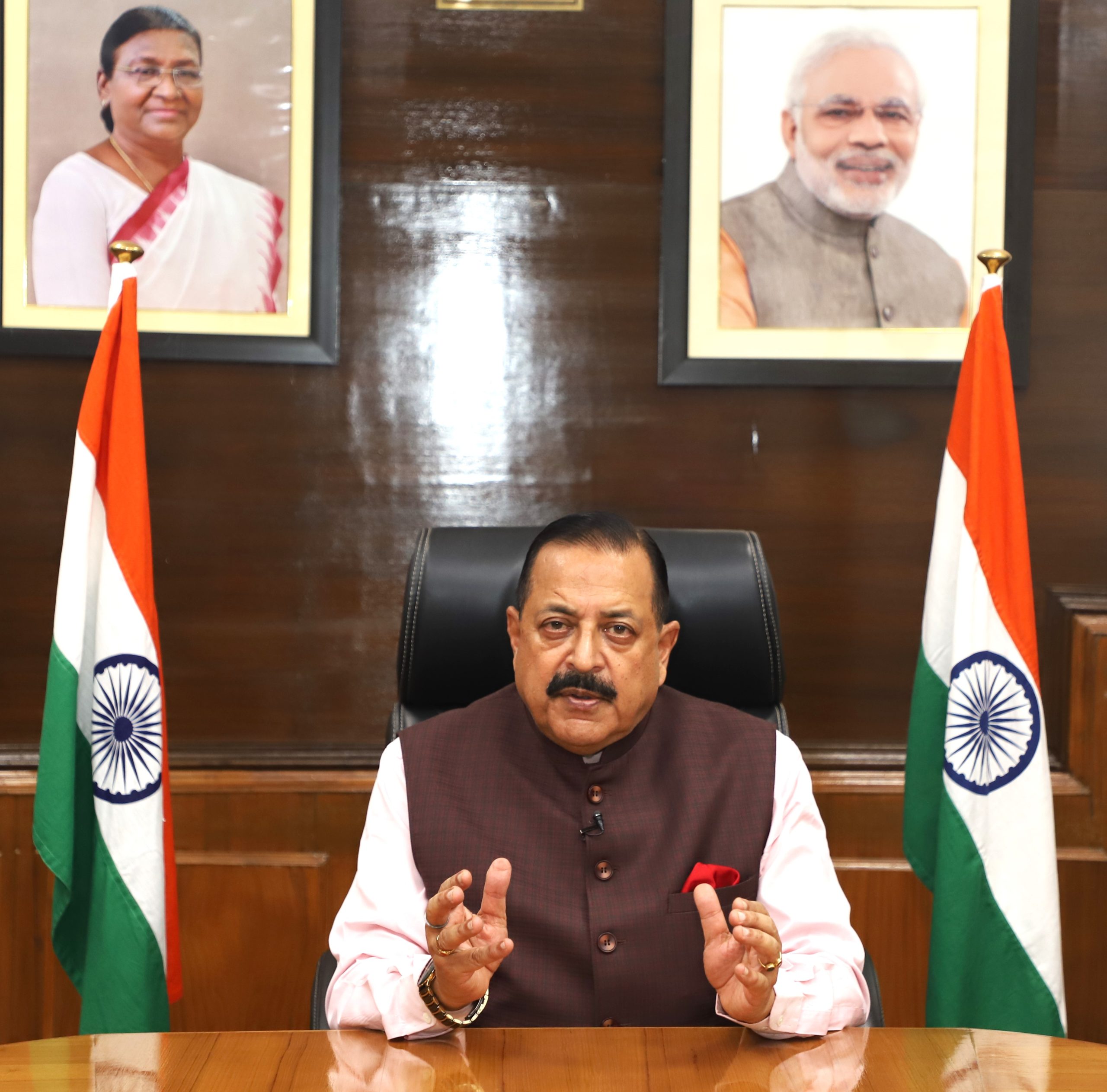NEW DELHI, Aug 5 : Union Minister of State (Independent Charge) Science & Technology; MoS PMO, Personnel, Public Grievances, Pensions, Atomic Energy and Space, Dr Jitendra Singh today said, BRICS (Brazil, Russia, India, China and South Africa) should continue to hold global significance for being the most populated marketplace, driven by the knowledge, creativity and innovation economy.
Addressing the 11th BRICS STI Ministerial Meeting at Goeberha in South Africa through virtual medium on “STI priorities and policies updates”, Dr Jitendra Singh said, the grouping could collaborate to identify and explore regional scientific-research challenges through joint S&T solutions suited to local economies.
Dr Jitendra Singh said, India would support BRICS efforts in developing innovative and inclusive solutions including digital and technological tools to deepen science and technology cooperation in the areas like Health, Agriculture, Water, Marine Sciences, Renewable Energy, Biotechnology, Advanced Digital Technologies and Environment etc. to promote sustainable development and facilitate affordable and equitable access to global public goods for all. He said, India looks forward to working closely to enhance the BRICS collaboration in the field of Science, Technology and Innovation.
Dr Jitendra Singh said, India has been steadily progressing ahead along the mantra emphasized upon by Prime Minister Shri Narendra Modi on ‘Jai Jawan, Jai Kisan, Jai Vigyan, and Jai Anusandhan,’ to establish its footprint in the research and innovation landscape at global level. This has paved the way for resounding success. India has now scaled up to 40th position as per Global Innovation Index (GII) 2022 as compared to 81st position in 2015. India is placed among the top 3 countries in terms of number of scientific publications as per NSF database; in context of number of PhDs, magnitude of higher education system; as well as with respect to the number of technology start-ups and number of unicorns, the Minister added.
Dr Jitendra Singh said, the National Research Foundation approved by the Modi Cabinet will ensure that scientific research is funded equitably and greater private participation is forthcoming. For this NRF will have to nudge companies to invest in R&D. We are planning a unique Public Private Partnership (PPP) entity for which ₹36,000 Cr of the research funding is to come from private sector, mostly industry whereas Government will put ₹14,000 Cr for the same, to ensure greater participation of industry, the Minister informed.
NRF has also been given a task of creating a policy framework and working on regulatory processes. Several disciplines have to work together to develop evidence -informed, context-relevant, resource-optimising, culturally-compatible and equity-promoting solutions. Besides the NRF, there have been a substantial number of other initiatives that we have undertaken to encourage our researchers working in basic and applied research addressing the various Sustainable Development Goals. Thus, with ever increasing horizon of research activities it is pertinent not only to address scientific research but also to work from end-to-end worksheets to embrace the challenge. This includes comprehending research challenges, raising the technology readiness level (TRL), provide business readiness level (BRL) for newly developed technology products. This can only be achieved through applications of new and emerging technologies.


